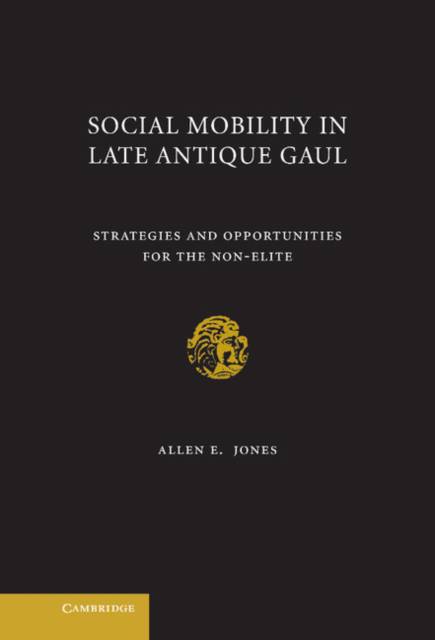
Bedankt voor het vertrouwen het afgelopen jaar! Om jou te bedanken bieden we GRATIS verzending (in België) aan op alles gedurende de hele maand januari.
- Afhalen na 1 uur in een winkel met voorraad
- In januari gratis thuislevering in België
- Ruim aanbod met 7 miljoen producten
Bedankt voor het vertrouwen het afgelopen jaar! Om jou te bedanken bieden we GRATIS verzending (in België) aan op alles gedurende de hele maand januari.
- Afhalen na 1 uur in een winkel met voorraad
- In januari gratis thuislevering in België
- Ruim aanbod met 7 miljoen producten
Zoeken
Social Mobility in Late Antique Gaul
Strategies and Opportunities for the Non-Elite
Allen E Jones
Hardcover | Engels
€ 206,45
+ 412 punten
Uitvoering
Omschrijving
In Social Mobility in Late Antique Gaul, Allen Jones explores the situation of the non-elite living in Gaul during the late fifth and sixth centuries. Drawing especially on evidence from Gregory of Tours's writings, he formulates a social model based on people of all ranks who were acting in ways that were socially advantageous to them, such as combining resources, serving at court, and participating in ostentatious religious pursuits, such as building churches. Viewing the society as a whole, and taking into account specific social groups, such as impoverished prisoners, paupers active at churches, physicians, and wonder-working enchanters, Jones creates an image of Barbarian Gaul as an honor-driven, brutal, and flexible society defined by social mobility. His work also addresses topics such as social engineering and competition, magic and religion, and the cult of saints.
Specificaties
Betrokkenen
- Auteur(s):
- Uitgeverij:
Inhoud
- Aantal bladzijden:
- 392
- Taal:
- Engels
Eigenschappen
- Productcode (EAN):
- 9780521762397
- Verschijningsdatum:
- 20/07/2009
- Uitvoering:
- Hardcover
- Formaat:
- Ongenaaid / garenloos gebonden
- Afmetingen:
- 157 mm x 229 mm
- Gewicht:
- 657 g

Alleen bij Standaard Boekhandel
+ 412 punten op je klantenkaart van Standaard Boekhandel
Beoordelingen
We publiceren alleen reviews die voldoen aan de voorwaarden voor reviews. Bekijk onze voorwaarden voor reviews.









